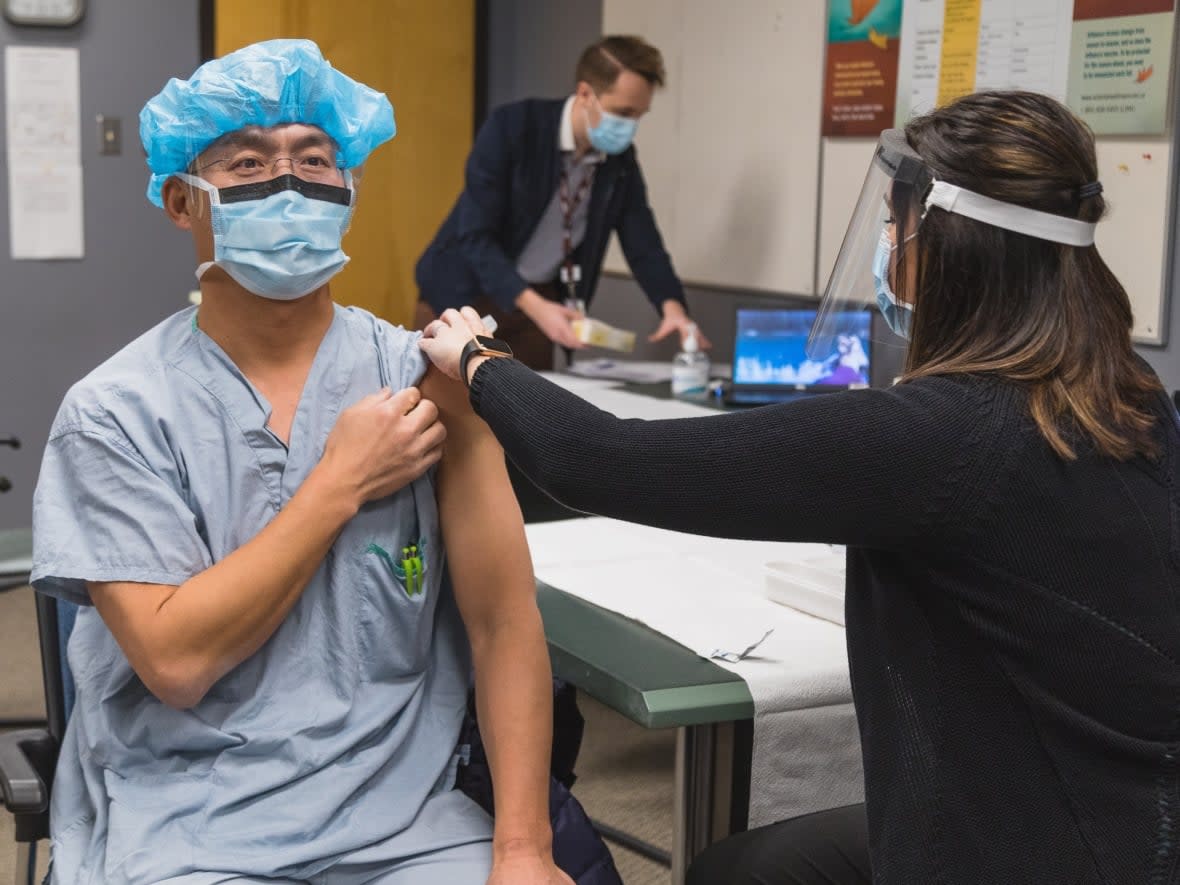Alberta government seeking 11 per cent wage cuts for some health-care workers

Alberta Health Services is seeking "insulting" wage cuts from front-line workers who were most pivotal in responding to COVID-19, the Health Sciences Association of Alberta says.
"Given all that our members have worked through in the last two years in particular, through the pandemic — [it's] very insulting and discouraging," said Leanne Alfaro, HSAA vice-president.
The union, which represents respiratory therapists, social workers, speech language pathologists and other health-care workers, says there is a huge gap between its and the government's opening bargaining positions.
About 20,000 union members have been without a contract since March 31, 2020. Bargaining was delayed by the pandemic and began last October.
HSAA wants four years of wage increases, to help account for inflation: 2.6 per cent the first year, 4.2 per cent the second year, 4.7 per cent in the third year and around 3.7 per cent in the fourth year, Alfaro said.
Members haven't had new wage increases since 2016.
The union says AHS is proposing three years of a frozen wage grid and a one per cent increase across the board in 2023.
But they're also seeking job-specific cuts for 57 per cent of the workers, including nearly 11 per cent rollbacks for social workers and pharmacy technicians. HSAA said the proposal includes an 8.7 per cent cut for speech language pathologists and 8.1 per cent slash for respiratory therapists.
Proposed Alberta Health Services rollbacks
Neither the government nor AHS would confirm the numbers. The finance minister's office won't say how much money such rollbacks would save.
"AHS respects the bargaining process and will not bargain in public or share details of bargaining while it is underway," AHS spokesperson Kerry Williamson said in an email.
In the legislature during question period, Health Minister Jason Copping said the parties' positions are only a starting point. He pointed to an agreement struck last year with the United Nurses of Alberta, in which the government initially sought pay cuts. Nurses wound up with wage increases.
Copping said the United Conservative Party government is investing in the health-care system.
"We are focused on increasing our staff," he said. "We are focused on increasing our investment in health care, and we'll deliver."
Alfaro said the government's rationale for wage cuts is to bring salaries for some professionals in line with colleagues in some other provinces.
She said Alberta is competing globally for some of these professionals and reducing their salaries could exacerbate staff shortages.
NDP mental health and addictions critic Lori Sigurdson said it's foolhardy to cut social workers' pay in the midst of a deadly opioid poisoning crisis, while homelessness grows and workers are handling higher case loads due to program cuts.
"It's demoralizing for front-line staff, so certainly, many are stepping away," she said.
NDP health critic David Shepherd said the proposed wage cuts are counterintuitive for a government that has promised to expand the capacity of the health-care system.
"This is a brutal insult to all Albertans who have put themselves in harm's way throughout this pandemic and who have been working to protect Albertans throughout their entire careers," Shepherd said.


